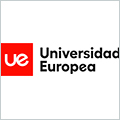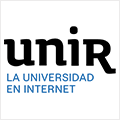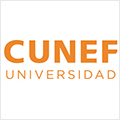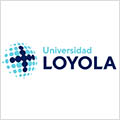Bachelor in Data Science and Artificial Intelligence - Grado en Ciencia de Datos e Inteligencia Artificial
-
Imparte:
-
Modalidad:Presencial
-
Precio:Unlimited number of Scholarships available for next academic year
UK/ROI/Channel Islands: £9,250 per year
International: £18,800 per year
Foundation year: £9,250 (UK, ROI & CI) £18,800 (Int´l) -
Comienzo:Septiembre 2026
-
Lugar:Bournemouth
Reino Unido -
Duración:4 Años
-
Titulación:BSc (Hons) Data Science and Artificial Intelligence
Preparing you for cutting edge work and an exciting career in a growing field of advanced data analytics and artificial intelligence.
Foundation Year: We have a Foundation Year option for students who do not meet the entry requirements for the degree course. This additional year of study will give you a grounding in the technical skills required for this course, building your confidence, knowledge and skills for further study. After successful completion of the Foundation Year, you will progress to the full degree. If you apply to study the full degree and do not meet the academic entry requirements, our admissions team may consider your application for the Foundation Year and notify you accordingly.
This course requires 104–120 UCAS tariff points including a minimum of 2 A-levels or equivalent. We are happy to consider a combination of qualifications and grades to meet the overall tariff, for example A-levels A*CC, ABC, BBB or BCC, BTECs DDM or DMM. You can use the UCAS calculator to see how your qualifications equate to UCAS tariff points.
If English is not your first language you´ll need IELTS (Academic) 6.0 with minimum 5.5 in each component, or equivalent.
Develop the versatility and personal qualities to select, use and combine a variety of machine learning tools, technologies and methods to meet the dynamic data analytical demands in a global context
Build and improve your applied technical skills to implement, apply and optimise machine learning algorithms such as deep learning and neural networks, as well as developing real-world industry-inspired data applications for any organisation
Engage in a series of practical industry-focused tasks and co-participate in a range of research projects, not only with BU staff but experts from other institutions and industries in the UK and beyond
Study and practise in our state-of-art speciality labs with enterprise-grade hardware and fully virtualisation-ready enterprise-level infrastructure
Gain valuable work experience on your placement if you choose to take one, entering an industry with huge predicted growth in the next decade
You´ll be qualified to work as a Data Science professional in all sectors where data analytics plays a critical role. Within 15 months of finishing the course, 91% of graduates are in employment or further study
FOUNDATION OPTION YEAR
Academic Study Skills for Engineering and Technology
Introduction to Computers
Mathematics for Engineering and Technology
Introduction to Information Systems Analytics
Introduction to Programming
Foundation Year Engineering and Technology Project
YEAR 1
Computer Fundamentals – understand the concepts and terminology of computing, networking, communications, security, and virtualisation.
Mathematics for Computing – this unit will equip you with the mathematical knowledge for modelling and solving real-world computing problems.
Programming – develop the skills and understanding to implement software solution to different problems whilst gaining hands-on experience in programming and testing.
Data Management – develop practical expertise in database querying and the application of the database design techniques.
Introduction to Business Analytics – discover the principles and techniques of data analysis and data-driven decision-making, particularly within a business context in a team approach.
Elective units
Computing and Society – learn about mapping computer techniques, concepts and principles in line with sustainability.
YEAR 2
Big Data Engineering and Analytics - Learn about the tools, technologies and data engineering elements used to efficiently process large amounts of data.
Machine Learning – this unit will help you develop and demonstrate an understanding of underlying theory and application of data analysis, data processing and machine learning techniques.
System Analysis and Design - explore the nature of software development with an emphasis on ‘upstream’ development and discover the challenges associated with the process.
Data Structures and Algorithms – learn about the theory and applications of fundamental data structures and algorithms, implementing them in real-world applications.
Technological Innovations in Business Analytics – this unit will equip you with practical knowledge of current and emerging technological innovations and techniques in a team approach.
Elective units
Software Business – gain a deeper understanding of the unique aspects of software business, the various business models and innovations. Suited to those interesting in setting up a software company.
OPTIONAL PLACEMENT YEAR
You’ll complete a minimum 30-week work placement which can be carried out anywhere in the world. The placement year offers a chance to gain experience and make contacts for the future.
Although you will be enrolled onto the four-year degree (including the placement), you can opt out of the placement element to complete your degree in three years.
FINAL YEAR
Deep Learning and Applications – gain an introduction into Deep Learning approaches and their applications for Machine Learning tasks.
Data Visualisation and Storytelling – develop the skills of data/information visualisation and visual analytics so that you can design efficient and effective data visualisations.
Individual Project – the Individual Project is an opportunity to pursue a topic of your choice. You’ll identify a problem and then select and implement a solution to solving that problem.
Option units
Computability and Complexity – learn how to address practical computational problems effectively through the demonstration of an algorithmic approach.
Human Computer Interaction – gain an understanding of the role of Human Factors (HF) and integration of its elements into the development of complex socio-technical systems.
Software Quality Assurance – learn about software quality assurance (SQA) and the techniques for appraising software quality so that you can construct software to the required quality.
Systems Development – gain a critical understanding of the design, development and deployment of enterprise-grade applications to allow organisations to scale their IT provisioning in an agile way.
Please note that option units require minimum numbers in order to run and may only be available on a semester-by-semester basis. They may also change from year to year.
Elective units
Digital Futures – drawing from technical, legal and social disciplines, learn about the role of digital technology in society and how it affects the individual.
Business Information Specialist
Digital Project Manager
IT Analyst
Software Developer
Web Developer





